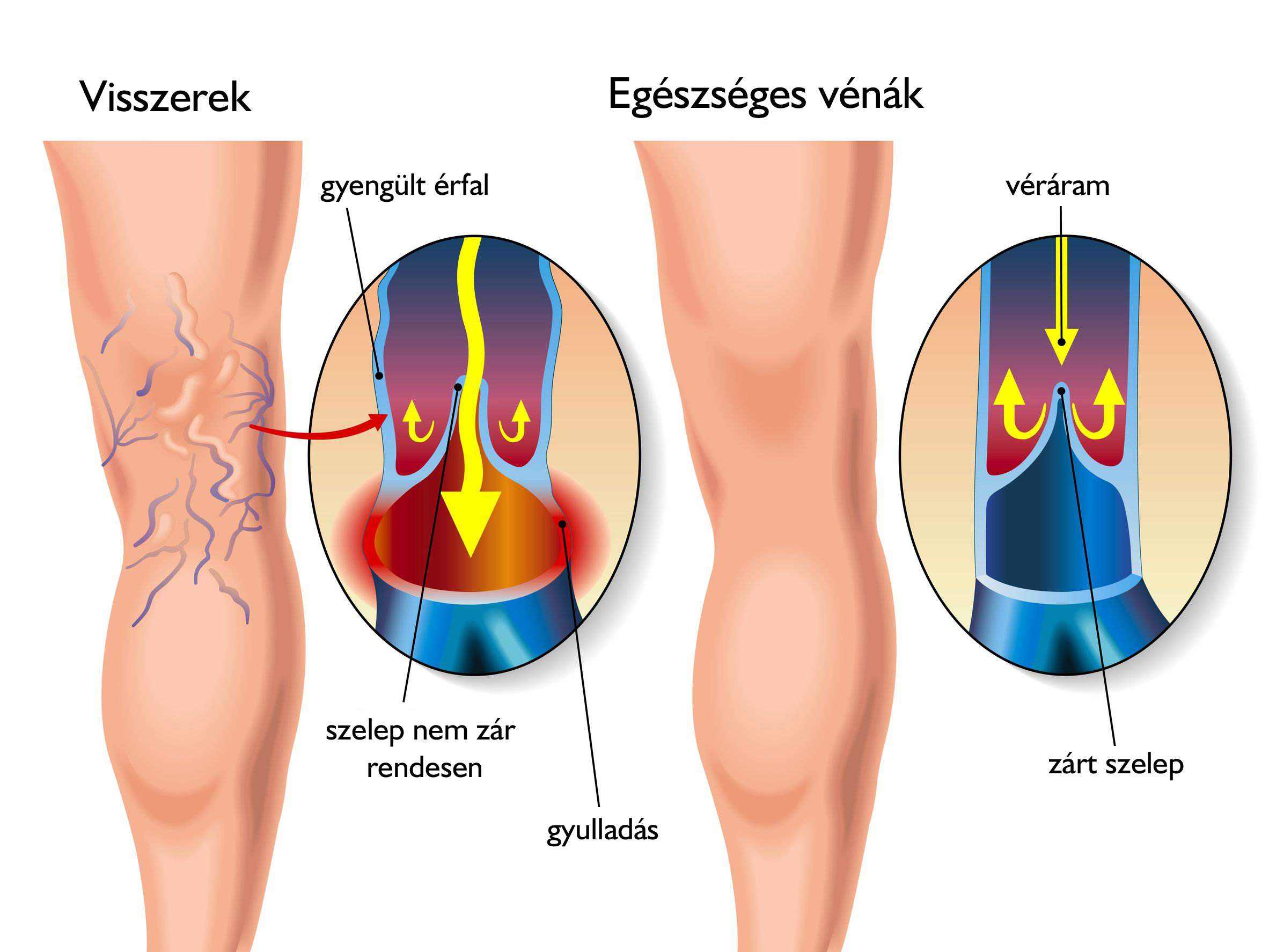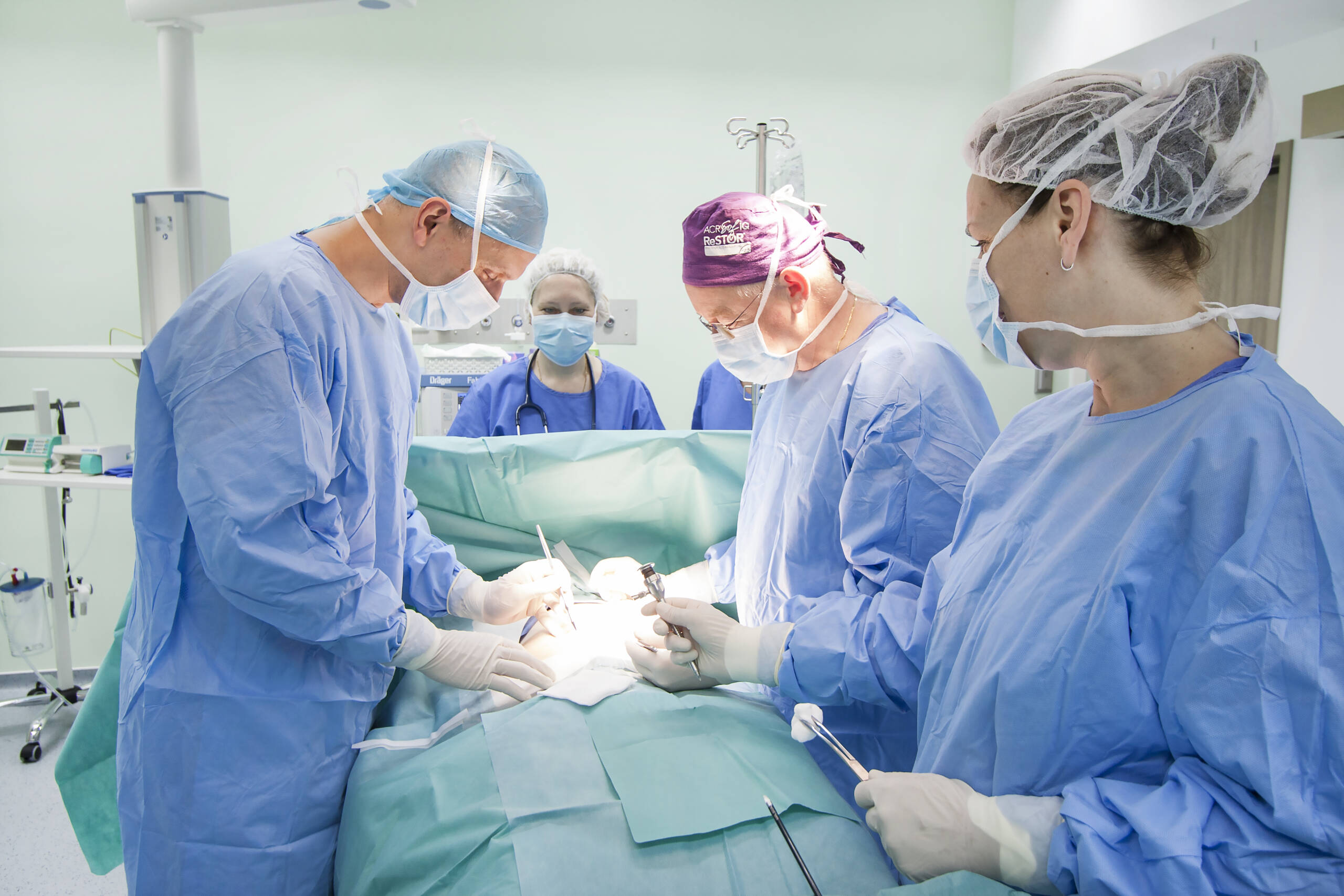Vascular surgery
What kind of complaints does it cause - how do I know I have varicose veins?
When we think of varicose veins, the bluish, purple bulging blood vessels and foot pain come to our minds, but it is good to know what type of less visible symptoms they can cause:
- Ankle and leg swelling, especially in the evening
- Painful, sensitive, heavy legs
- Visibility of veins on the skin surface

- Cramping sensation
- Itchy feet, oedema
- Injuries that occur in the problematic area of the varicose vein result in greater blood loss and a slower healing time
- Discoloured skin near the affected vein(s)
Untreated varicose veins can later lead to further serious problems such as:
- Dry, thinned skin
- Phlebitis
- Non-healing leg ulcer
- Thrombosis
How can varicose veins be treated?
In each case, treatment depends on the progress of the disease:
As lifestyle habits often determine the development of varicose veins, it is worth changing our bad habits first in case of mild complaints:
Alcohol consumption, smoking should be reduced and if you are overweight, it is important to lose weight – as much as possible – as the extra weight puts an exceeding strain on an already problematic foot.
It is advisable to avoid lifting heavy objects, prolonged standing, because these put our varicose legs under increased strain. In case of standing work, the muscles have to be moved from time to time. (e.g. tiptoeing, walking)
Furthermore, it is not recommended to wear high heels, tight clothes; bathing in warm water (showering is recommended instead); sun-bathing; sauna.
Varicose vein surgical solution
However, in case of severe varicose veins, varicose vein surgery should be considered to prevent further complications such as thrombosis, pulmonary embolism, or leg ulcers. Nowadays, we have several types of surgery available (conventional, laser), always your doctor and your condition will determine which option is recommended.
In all cases, it is useful and advisable to wear compression stockings and bandages. With this, we can support the wall of the already dilated blood vessels and thus the muscle work also more efficiently empties the blood that may be stagnant from the veins.
In addition, we can do a lot to regenerate our veins with gymnastics, special exercises, some of which we can do while sitting at our workplace: ankle crossings, cycling movements, tiptoing, etc.
What are the advantages of varicose vein surgery?
- Varicose vein surgery is a quick, routine procedure that can even be performed on an outpatient basis
- It can also be performed under local anaesthesia, so you do not have to worry about anaesthesia either
- No cutting, stitching, suture collection required
- There are no side effects
- There is no pain

Are there any side effects?
One of the biggest benefits of laser varicose vein surgery is that it involves minimal risk. Side effects cannot be expected if you follow the advice and instructions of your doctor after the procedure.
What is a varicose vein?
The blood vessels network throughout our bodies, delivering essential oxygen to the tissues. While the blood vessels carry oxygen-rich blood from our hearts, the varicose veins ensure the removal of carbon-rich blood from the tissues.
Varicose veins (more precisely varicose veins disease) are thus insufficient functioning and disease of these veins.
Several types of disease can affect this type of blood vessel, of which varicose veins are the most common, and it is also known in common parlance as “I have varicose veins”.
In varicose veins, the blood vessel wall abnormally thickens or dilates, so it does not do its job properly, that is, it does not efficiently deliver used, carbon-rich blood to the heart.
Varicose veins are mainly found in the veins of the legs and thighs, but can also develop elsewhere.
Why do varicose veins develop?
Venous diseases affect almost 20% of the Hungarian population, and are one of the endemics of our time. There is an increased strain on the lower limbs so the valves in the veins can be destroyed. These are the valves that should interrupt the flow of the used, waste-filled blood back to the heart, but if damaged, they cannot maintain direction, with some of the blood flowing back to the deeper sections.
In addition, the following play an important role in the development of varicose veins:
Gender
Women are more likely to develop varicose veins than men because female hormones relax the vessel walls, so the valves of the same size no longer close properly in dilated blood vessels.
Age
Over time, the walls of the veins also begin to lose their elasticity and valve failure becomes more common.
Genetics
Genes can be partly responsible for varicose veins, and there is a greater risk of developing them if a close family member suffers from this disease.
Profession
Jobs that require long periods of standing may increase your risk of getting varicose veins.
Obesity
Being overweight also puts an extra burden on the veins, which causes increased strain and extra work on the veins.
Pregnancy
The additional pressure exerted on the veins of the pelvis by the weight of the foetus and the relaxing effect of the hormones oestrogen and progesterone on the vessel walls contribute to the development of varicose veins during pregnancy.
